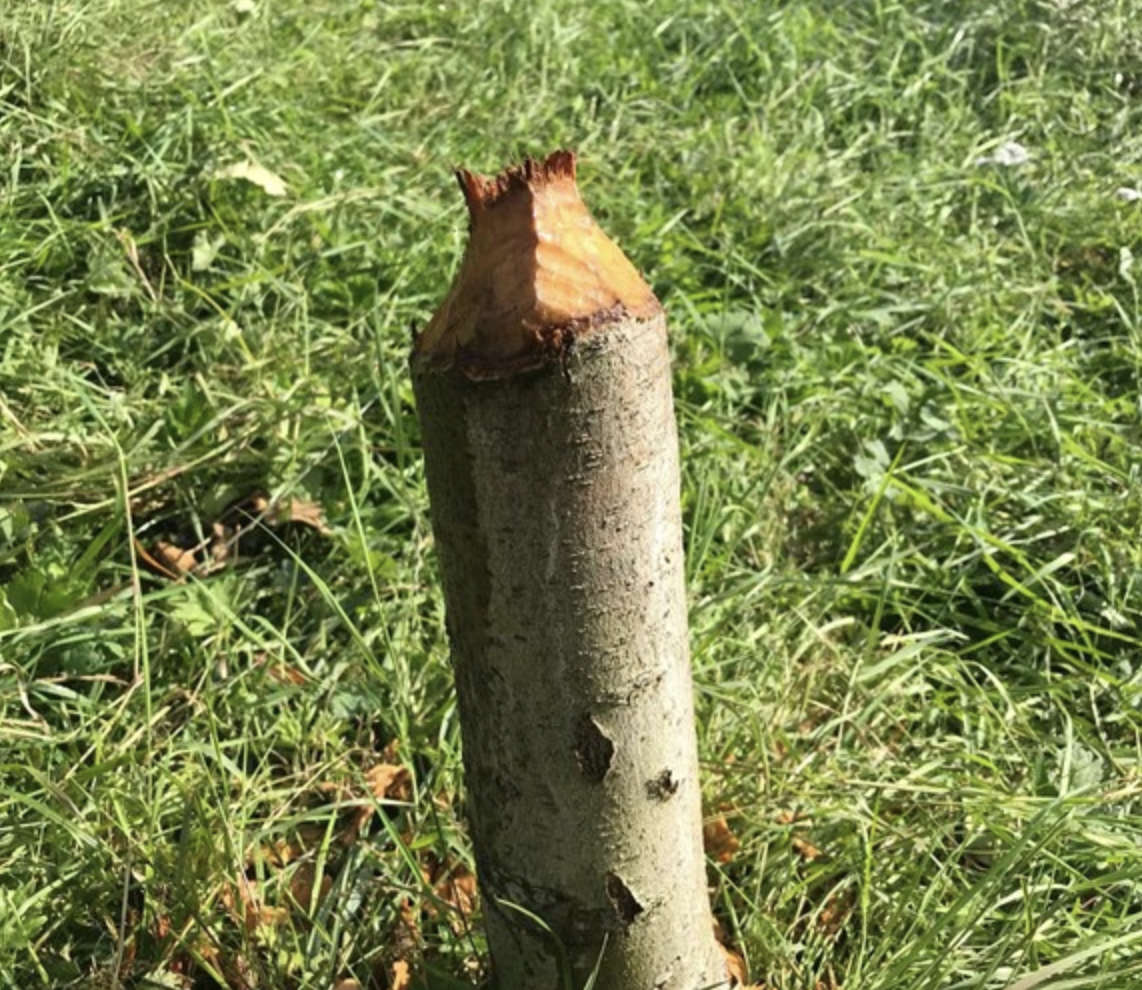
Semiaquatic rodents becoming urbanised
A wild beaver has destroyed an apple tree in Honiton - a sign that the semiaquatic rodents, re-introduced into the country in 2008, are becoming urbanised.
It's the first beaver activity in an East Devon town, and well away from the River Otter, where the beavers began breeding.
Now a tree in Millers Way community orchard near Hontion has bitten the dust, with evidence of beaver bite marks pointing to the culprit. Devon Wildlife Trust beaver ranger Jake Chant later confirmed the presence of at least one beaver in the River Gissage.
The government only gave permission for Devon’s beavers to stay in 2020, described as a landmark decision and the first to legally sanction the reintroduction of an extinct native mammal to England. The beavers are allowed to expand their range naturally, finding new areas to settle.
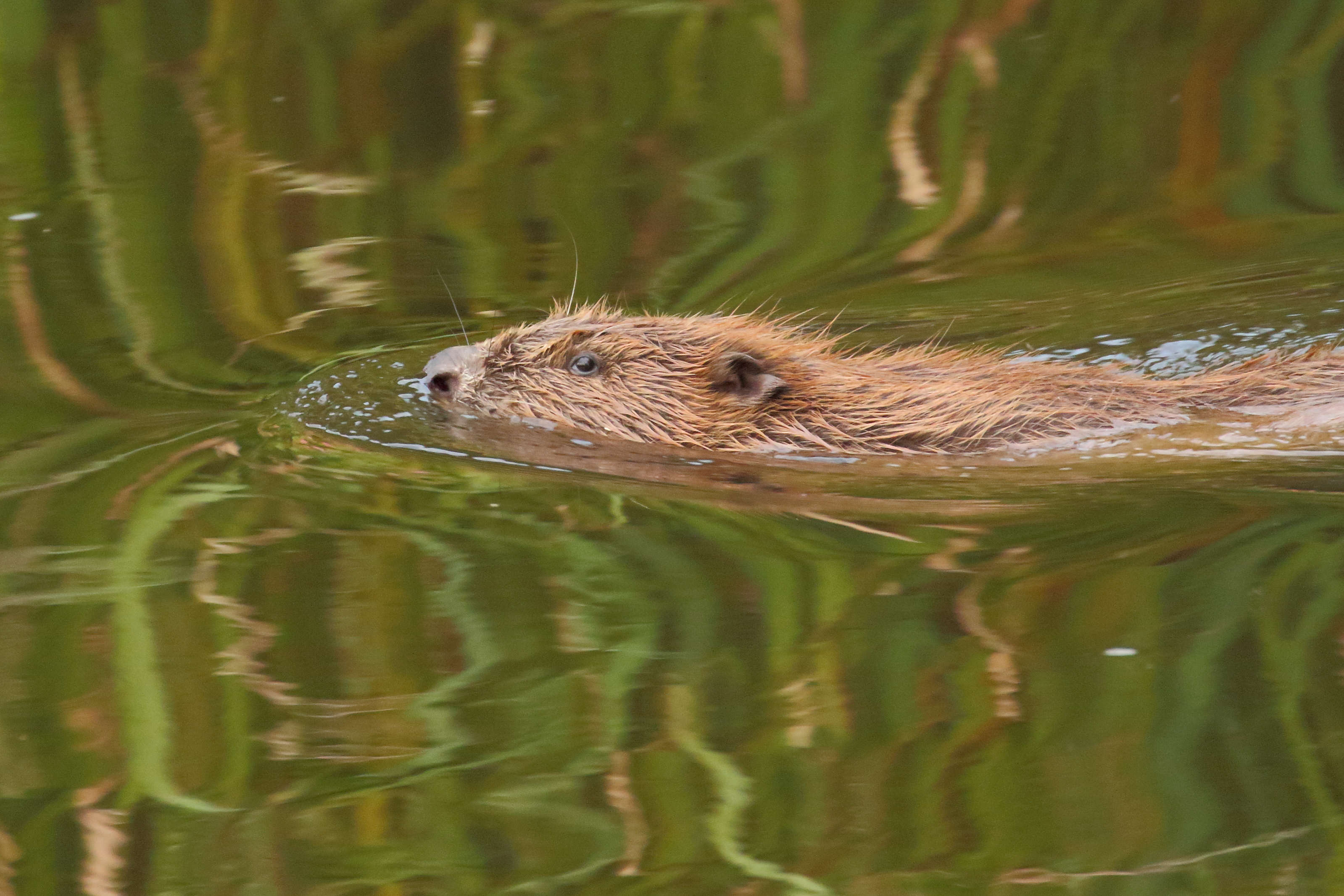
Something to get your teeth into (courtesy: Mike Symes)
James Chubb, East Devon District Council’s Countryside Team Leader, said: "Beavers on the River Otter have been observed to quickly grow accustomed to people and lose their shyness. This is great from a public enjoyment perspective, but people should remember that beavers see dogs as predators! It’s important to keep your distance and keep dogs on leads."
Devon Wildlife Trust’s Beaver Officer, Jake Chant, said: "During the summer beavers mainly eat riverside vegetation and in the winter they are more likely to feed on the bark of trees. Tree guards and wire mesh are being put in place to protect some of the trees in the area.
"If the beavers stay on the Gissage they’re likely to breed this winter and have kits in spring. I will be checking in on the beavers regularly."
Cllr Geoff Jung, East Devon District Council’s portfolio holder for coast, country and environment, said: "We are delighted to see the expansion of beavers in our area.
"We’ll work closely with partners at Devon Wildlife Trust, East Devon AONB and Honiton Town Council to ensure the beavers and the public are safe.
"We will do everything we can to protect this new population of urban beavers, and officers will monitor and manage the beavers to make sure they remain safe and to record their activity in the river.
"If people would like to get involved in helping to monitor the beavers and their habitat, or if they have concerns please email wild@eastdevon.gov.uk"
Beavers were once native to Britain but were hunted to extinction in the 16th century for their fur, meat and scent glands, leading to the loss of the wetland habitat of lakes, mires and boggy places they were key to creating.
Wildlife experts are keen to return them to the landscape to help restore wetland habitats and boost other species, manage water and curb flooding, and create eco-tourism opportunities.
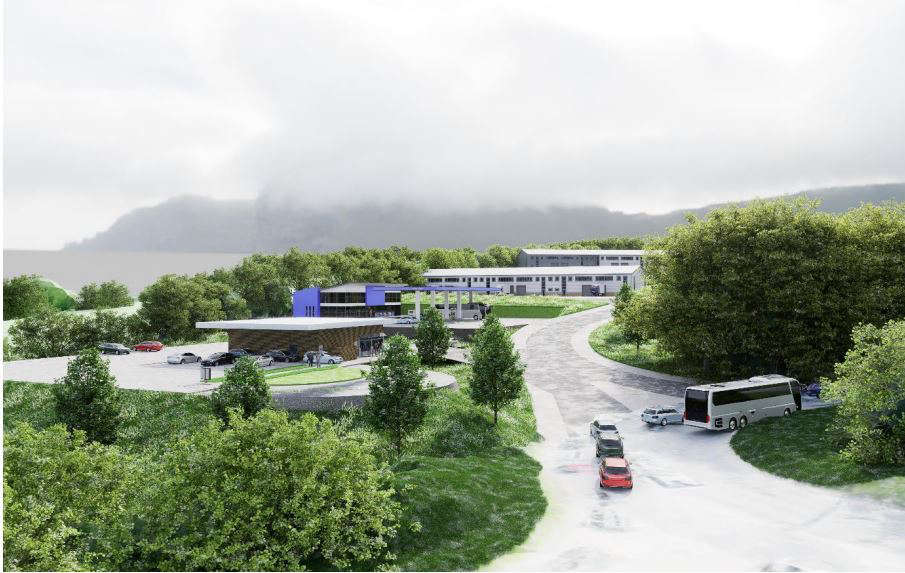 New service station could be built near Barnstaple
New service station could be built near Barnstaple
 Devoncast- Murder in Sidmouth with Jeremy Vine, crumbling cliffs and fake tweets for the birds
Devoncast- Murder in Sidmouth with Jeremy Vine, crumbling cliffs and fake tweets for the birds
 Concern as under half of Devon residents eat their 5-a-day
Concern as under half of Devon residents eat their 5-a-day
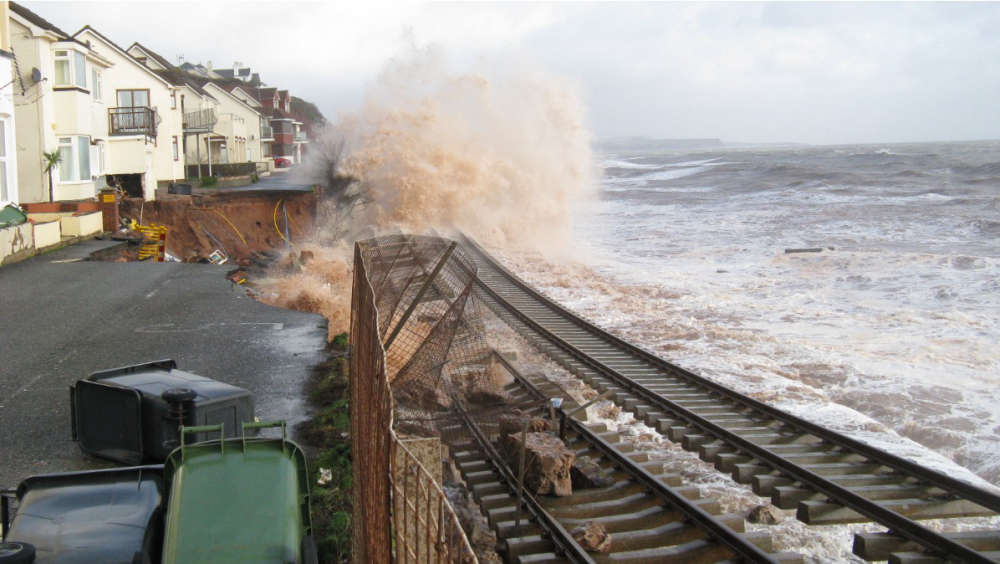 Dawlish cliffs could collapse at any time
Dawlish cliffs could collapse at any time
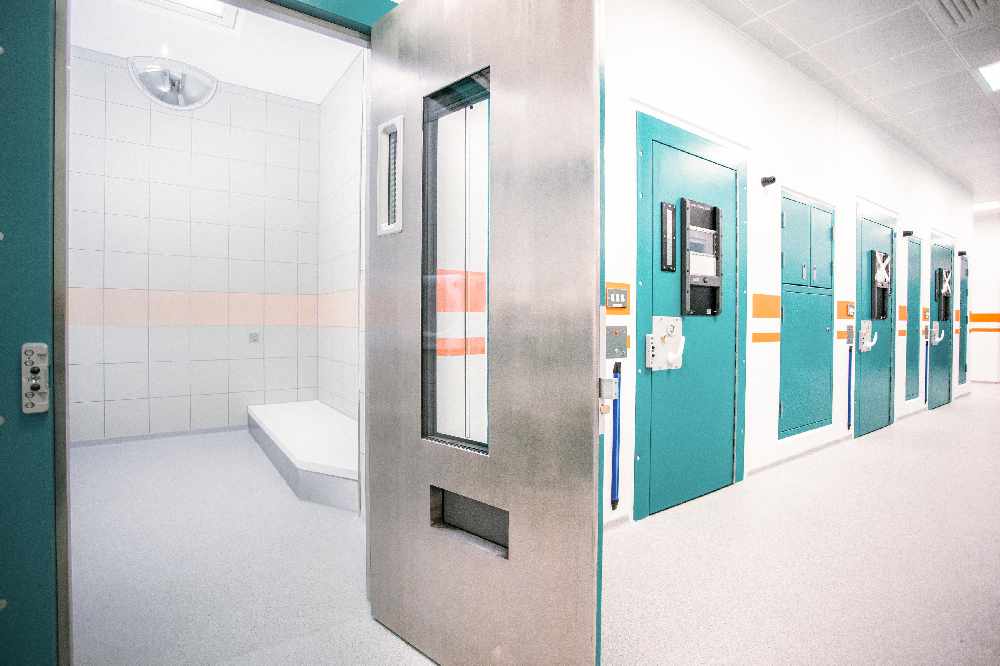 Two murders in Cornwall
Two murders in Cornwall
 Councillor owes more than £3,000 in council tax
Councillor owes more than £3,000 in council tax
